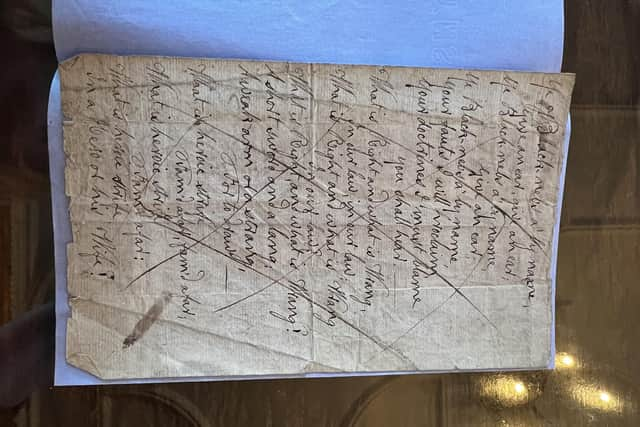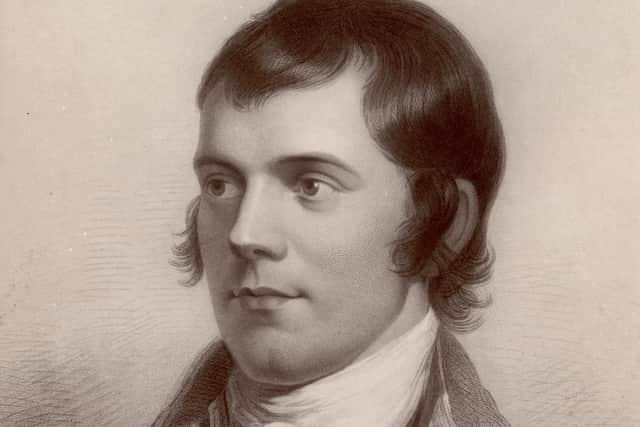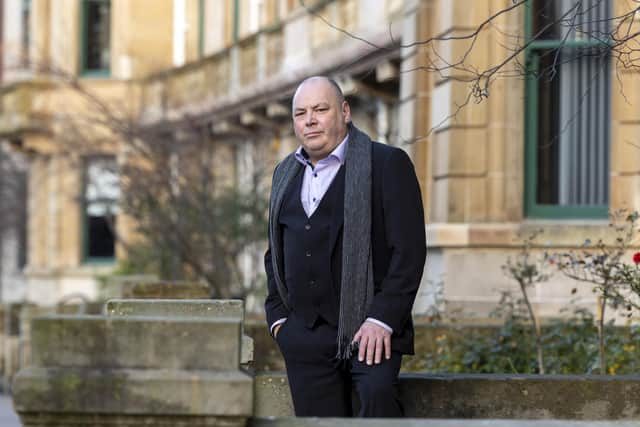Burns Night: 'Cancelled' Robert Burns song could have cost bard his livelihood, says scholar
A Robert Burns scholar has unearthed an early version of one of the poet’s songs he believes could have cost the bard his livelihood had it been published because of its revolutionary ideas.
The cancelled working manuscript of the song Ye Jacobites By Name was written by Burns in 1791 in the early years of the French Revolution when reformers in the British Isles were also agitating for political change at a time when most working people were not permitted to vote.
Advertisement
Hide AdAdvertisement
Hide AdThe draft, entitled Ye Black-nebs By Name, features writing that Professor Gerard Carruthers, of the University of Glasgow’s Centre for Robert Burns Studies, believes shows “implicit sympathy” for the reformers.
“Black-nebs” was a term used to describe reformers in the 1790s, and is defined in the Dictionary of Scots Language as meaning “one viewed as disaffected to the government, especially about the time of the French Revolution and for some time afterwards”.
Prof Carruthers said the early manuscript, which was found among a collection of Burns materials held at Barnbougle Castle near Edinburgh, is “the most explicit instance” of several where the bard ostensibly wrote about history, but actually had his eye on 18th-century current affairs.
He said he believed Burns opted to keep the draft under wraps out of concern the ideas contained within it could put his career as an exciseman for the Crown at risk.


Prof Carruthers said the discovery of the early version of the song, which has been released ahead of the bard’s birthday today, provides “a fascinating insight” into his creative genius.
He said: “The cancelled Ye Black-nebs chimes with other songs, most famously Scots Wha Hae and A Man’s A Man For A’ That’, where revolutionary ideas are smuggled in under the guise of writing about the Scottish wars of independence or universal brotherhood.
“In the end, Ye Black-nebs was more explicit than these texts and is completely overwritten by Jacobite. Burns’s original version, however, raises the strong possibility that the finished version is code for more recent 1790s revolutionaries.


“The variant Black-nebs (revolutionaries) instead of Jacobites in the Barnbougle manuscripts references someone of democratic principles following the French Revolution and raises the intriguing proposition that Burns thought first of composing a lyric in the voice of a disillusioned radical of 1790s before moving from a Jacobin-themed to a Jacobite one.
Advertisement
Hide AdAdvertisement
Hide Ad“If Burns had lived longer, I believe he would have been in favour of political reforms emerging at that time, particularly after the Napoleonic wars of the early 1800s.
“He wouldn’t have continued to use cunning to cover his allegiances, I don’t think. But at the time as a Crown employee and at this point in his life, he hadn’t got there just yet.”
Prof Carruthers said at the time the song was written at Burns’s farm at Ellisland, the poet faced financial uncertainty, both for himself and his growing family.


“He was therefore dependent on his excise employment and couldn’t speak as freely as he might have liked,” the scholar said.
Prof Carruthers, the Francis Hutcheson chair of Scottish literature at the University of Glasgow, said the 1790s were “a very dangerous time” for people who backed political reform.
Comments
Want to join the conversation? Please or to comment on this article.
